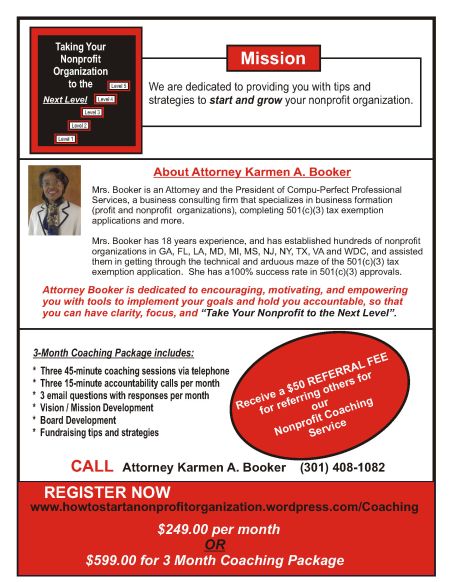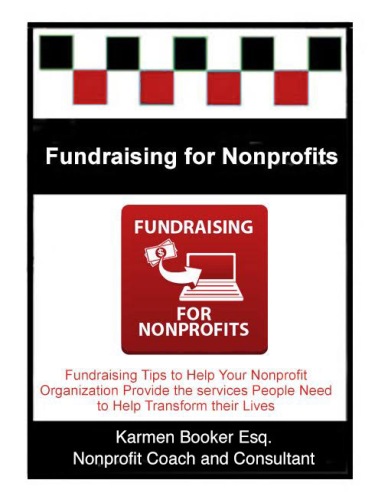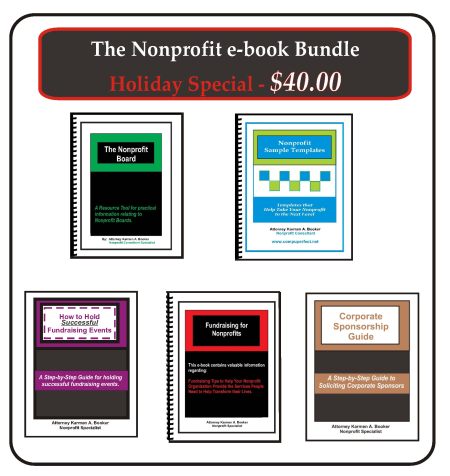No. Incorporating in the state in which the Nonprofit organization will be located qualifies as a Nonprofit Corporation. However, the benefits of filing for tax exempt status are:
1. The organization is exempt from having to pay federal taxes on income it receives.
2. Donors (monetary contributors) are able to take a charitable deduction for their donations on their personal tax returns.
3. The 501(c)(3) Federal Tax Exempt Status organization can apply for state tax exemption and real property tax exemption for real property that the organization owns.
4. The 501(c)(3) Federal Tax Exempt Status organization can apply for GRANTS (Free Money) to fund their programs.
For example, suppose you wanted to operate a community development center, which provides tutoring for school-aged children, GED preparation, and computer training. Well, you definitely cannot rely on donations from the public at large, and therefore need an alternative source of funding. That alternative source of funding is grants.
There is definitely a sustainable Network of Effective Funders across the United States where corporations and foundations leverage public and private funds to disburse GRANTS TO COMMUNITY ORGANIZATIONS that provide direct services to children, youth, and their families.
However, the key is to reach out and help the community by establishing a nonprofit organization. Compu-Perfect Professional Services, owned by Karmen A. Booker can help you write your vision, make it plain and fund your vision. We can assist you from Start to Finish in establishing your nonprofit organization and securing your 501(c)(3) status, and obtaining GRANTS (Free Money) to help fund the nonprofit’s programs and services. We are offering Special Discounts, so contact us at (301) 408-1082.
Karmen A. Booker is an Attorney, Business Consultant and Owner of Compu-Perfect Professional Services, a business consulting firm specializing in Business Entity Formation (Corporations, Limited Liability Companies, and Nonprofit Corporations), Completing 501(c)(3) Federal Tax Exemption Applications, Grant Research and Writing services, and more.
Mrs. Booker has 18+ years experience,and has established hundreds of nonprofit organizations in Georgia,Florida,Louisiana, Maryland, Mississippi, North Carolina, New York, Texas, Virginia, and Washington, DC and assisted them in getting through the technical and arduous maze of the 501(c)(3) tax exemption application. She has a 100% success rate in 501(c)(3) approvals. CALL her TODAY at (301) 408-1082.



 Posted by kbooker
Posted by kbooker 











